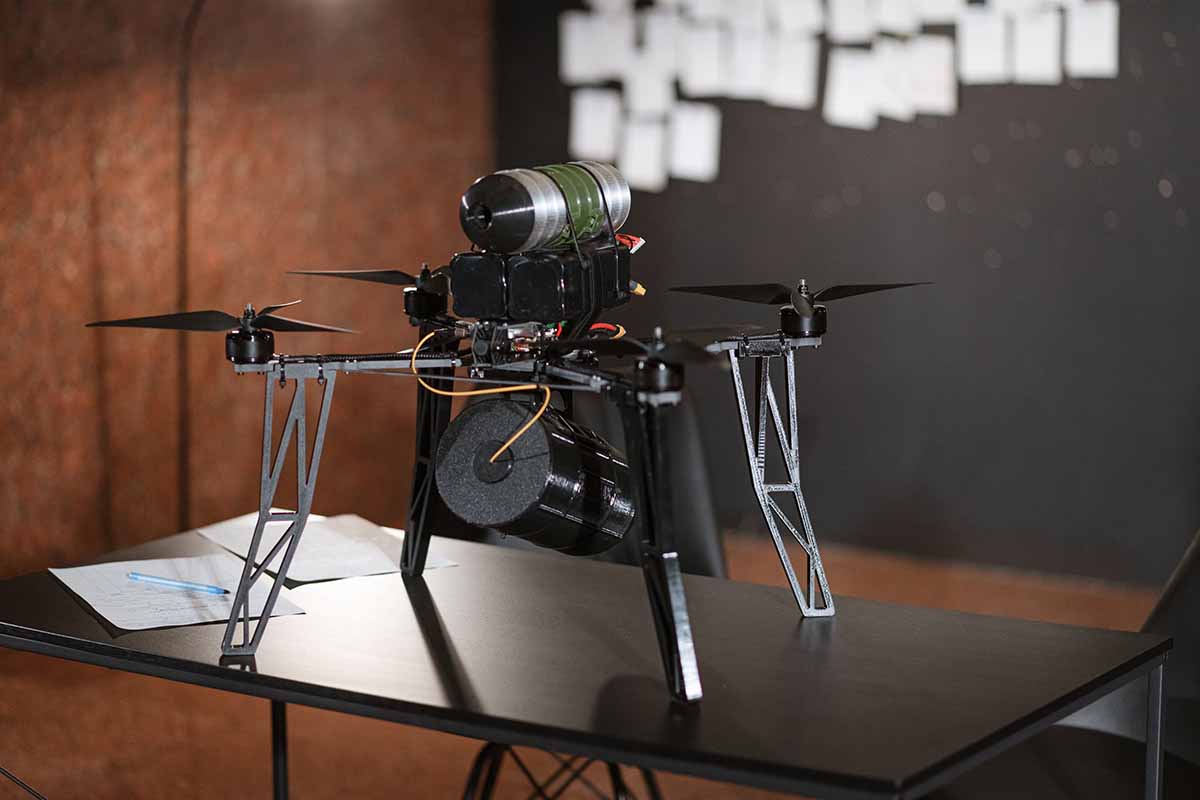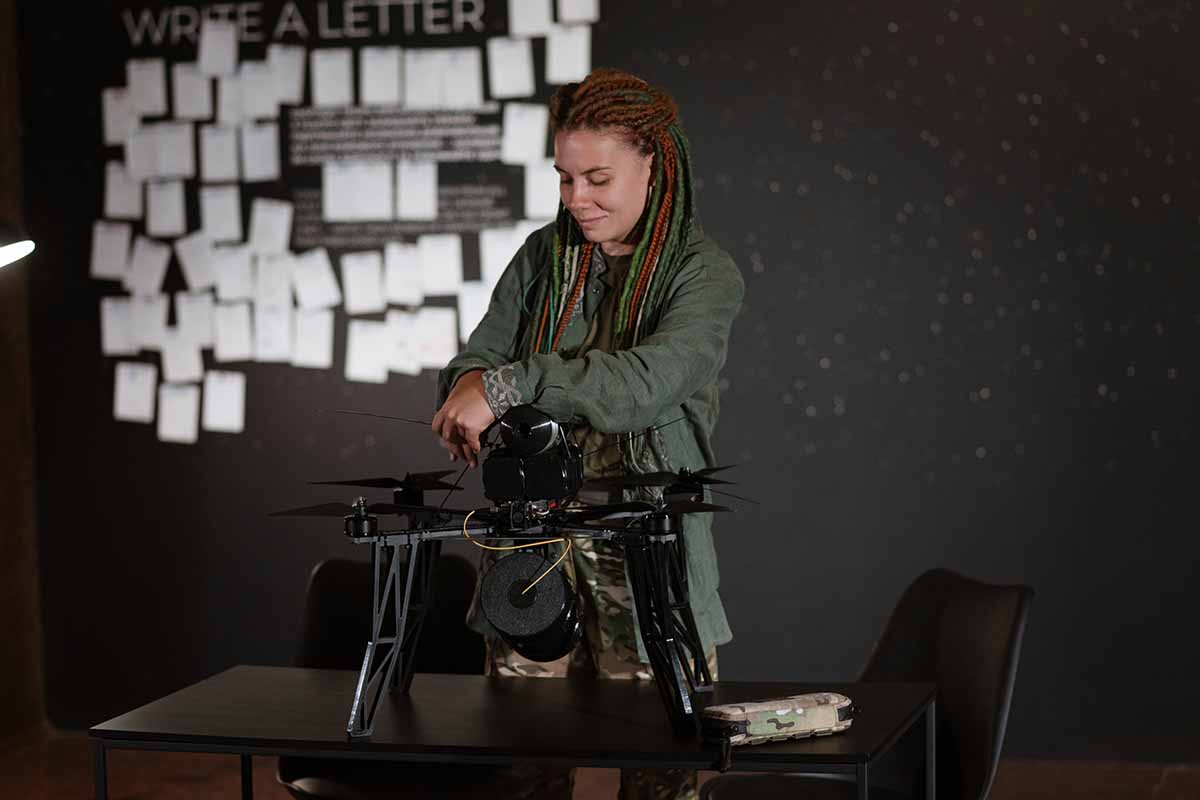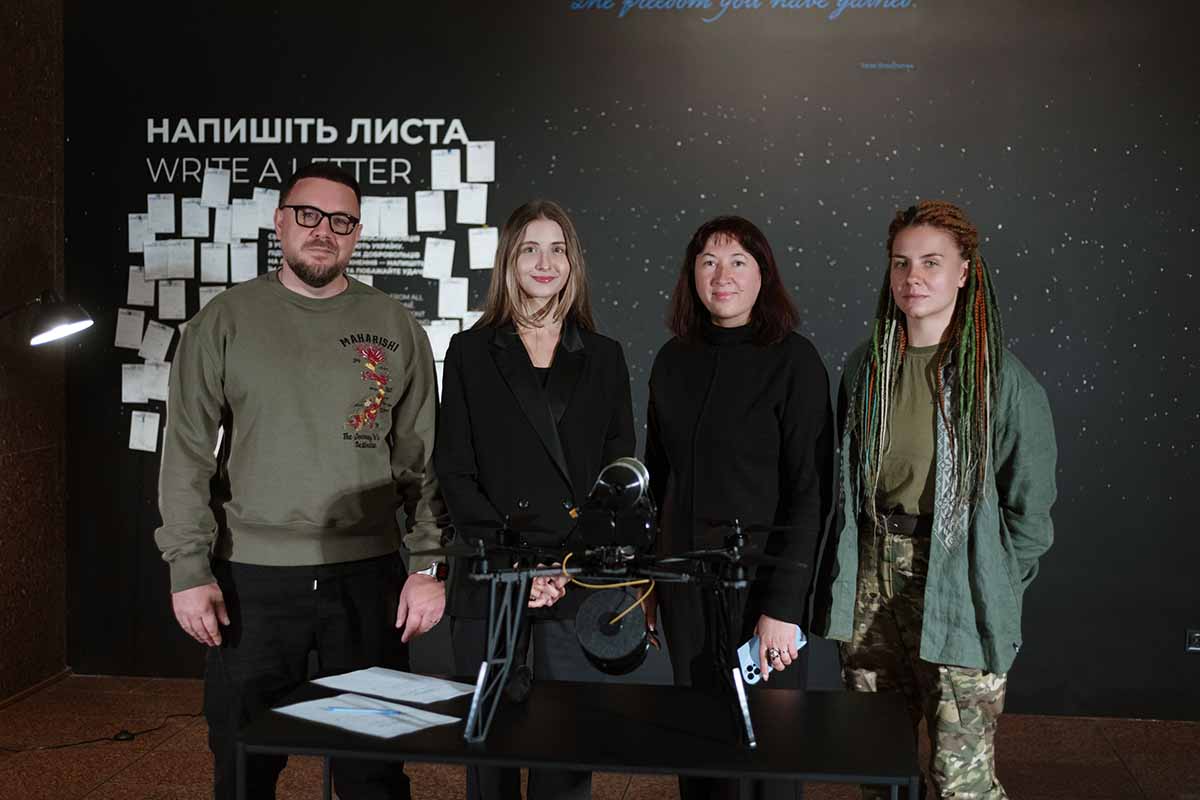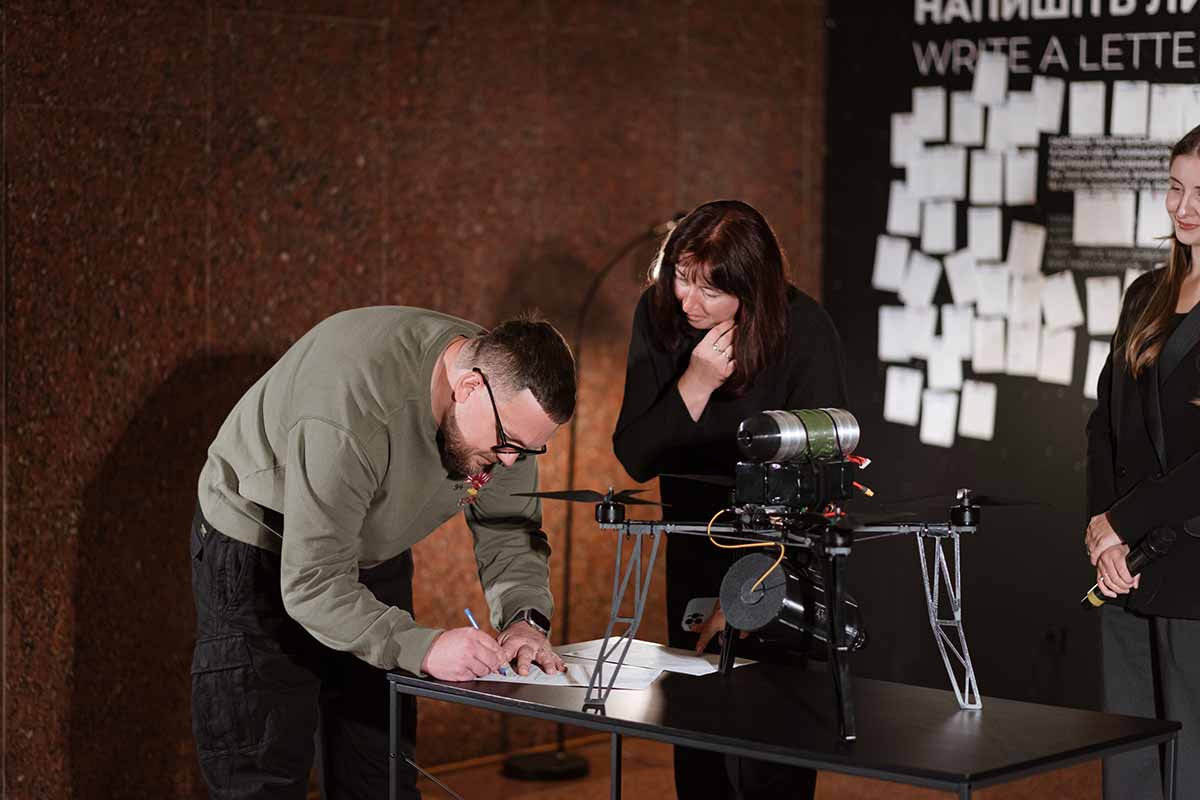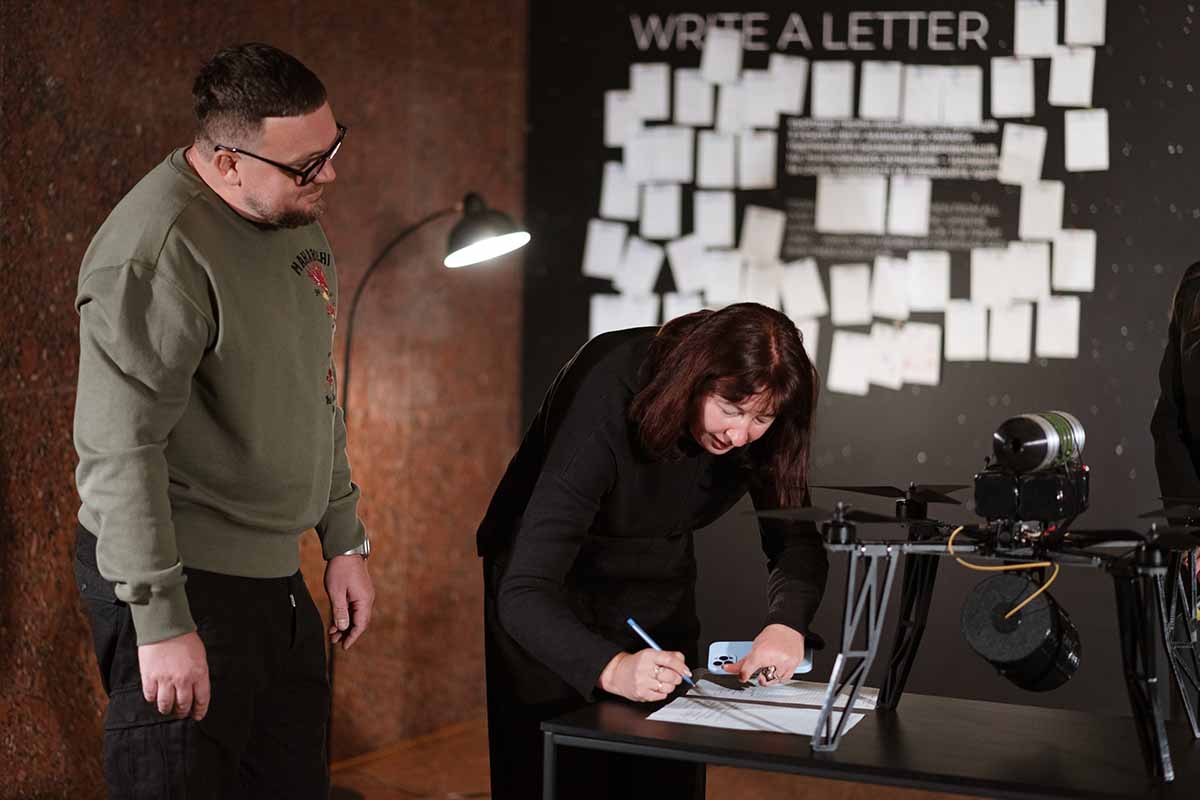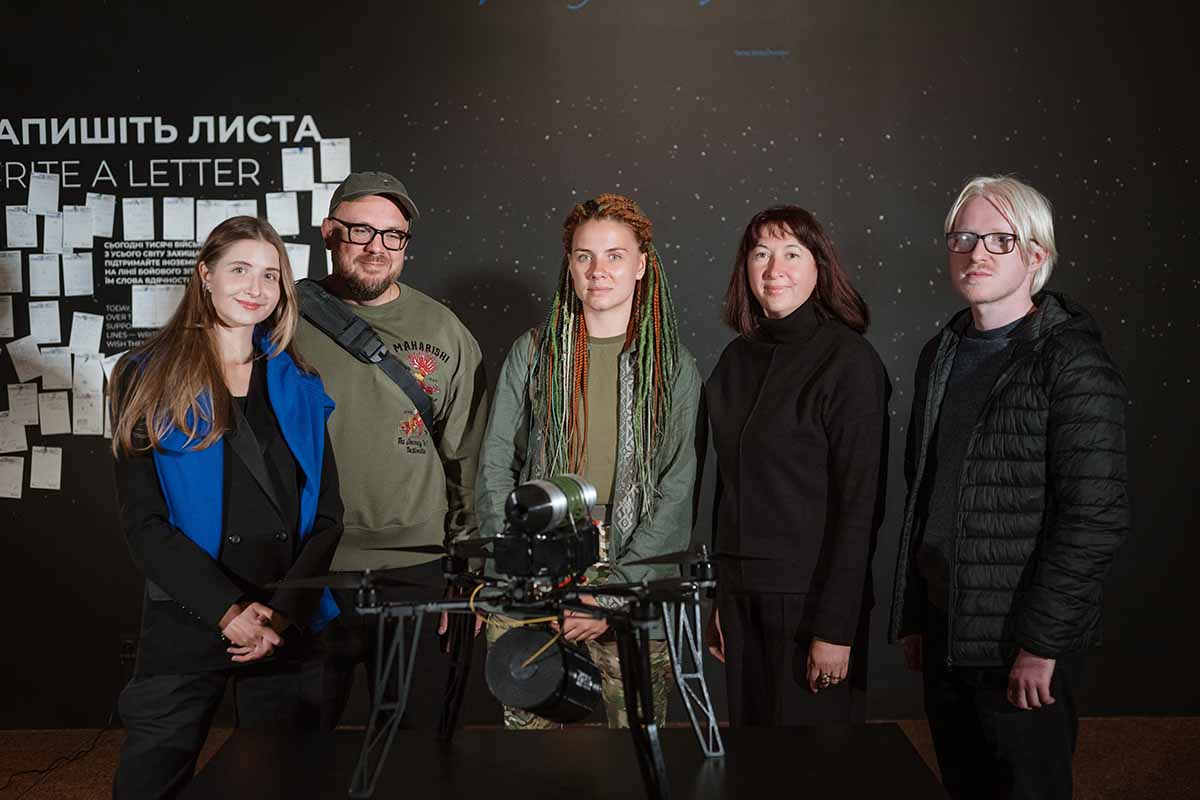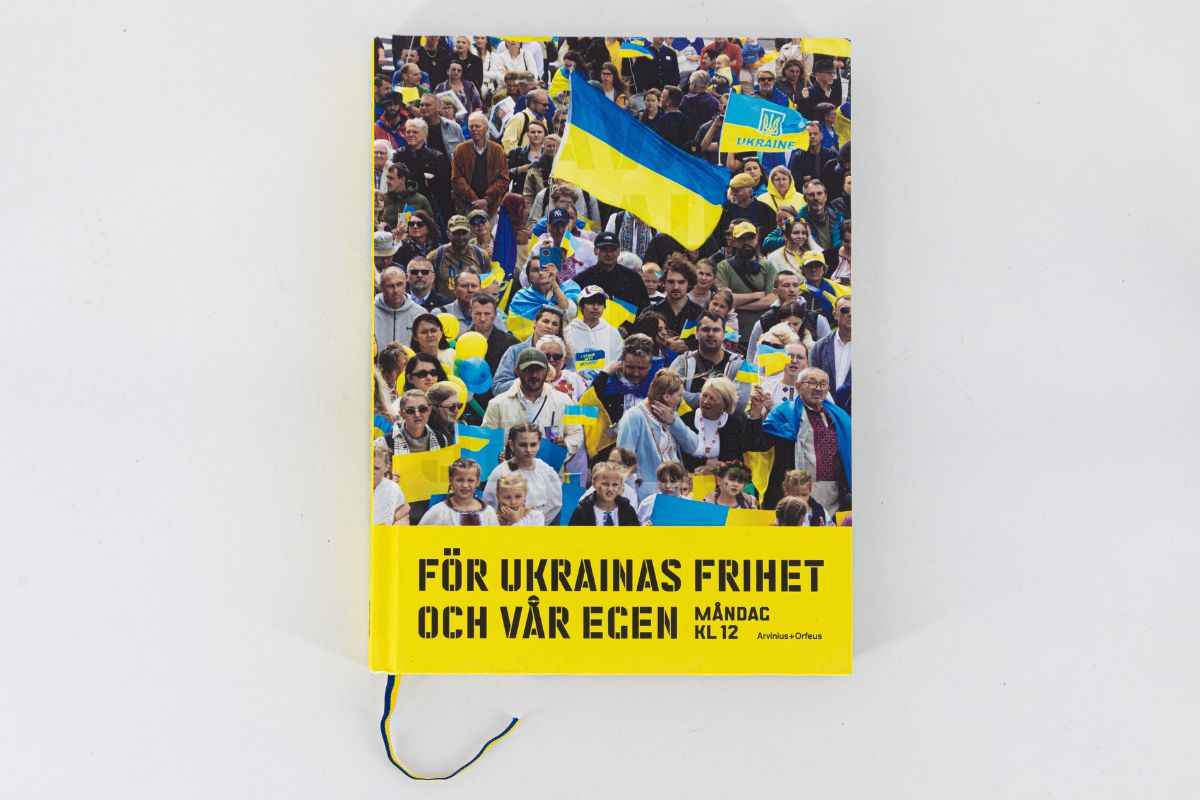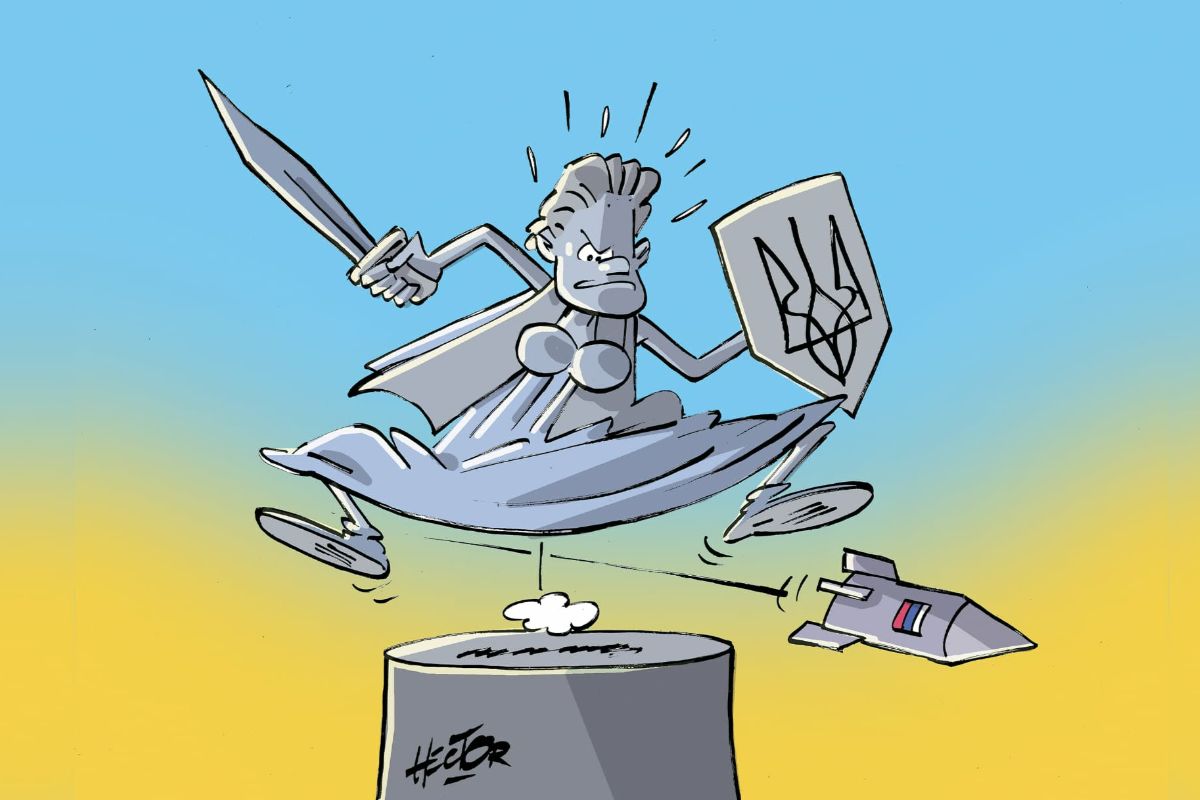Recently, one of the newest and most modern UAVs developed by WARMAX from the DRONAIUM group of companies, was handed over to the War Museum.
During the event, Ruslan Bieliaiev, Head of DRONARIUM ACADEMY, and Anastasia Sobova, Development Director, spoke about the DRONARIUM group of companies, which includes DRONARIUM ACADEMY, WARMAX TECHNOLOGIES, DRONARIUM AIR, R&D. Thanks to its diversified operations, the group covers the full cycle of both manufacturing aerial, ground, and unmanned underwater systems and training the operators of them. Since March 2022, the DRONARIUM group has trained over 17 000 military operators and produced about 20 000 UAVs of various types.
More details about the RONNI-13-OD were provided by Tetiana “Ruda”, Head of the FPV Piloting Course. The RONNI-13-OD completed its first combat mission on the Pokrovsk front in January 2025 and today it operates across all sectors on the frontline. This type of UAV ensures precise target engagement even under intense electronic warfare (EW) – it can “see” and hit targets even when the radio signal is completely jammed. The drone can be equipped with fiber-optic control modules with ranges of 10, 15 and 20 km. The museum’s exhibition is a daytime version of the drone, fitted with a 20-meter module.
According to DRONARIUM representatives, communication with the military and their feedback on the drones’ effectiveness is crucial to them. The RONNI-13-OD demonstrates 90% effectiveness and is currently one of the most efficient UAVs in active combat conditions.
Oksana Yankovenko, Deputy Director General for Collections, expressed gratitude to the Museum’s guests for donating artifact and for their long-standing work in the defense sector. “The addition of modern examples of Ukrainian drones to the War Museum’s collection testifies to how the technologies of today are already shaping history. The RONNI-13-OD is not only a symbol of engineering skill and military effectiveness, but also an artifact that will preserve the memory of the Ukrainian struggle in this war for future generations”, summed up Oksana Yankovenko.
